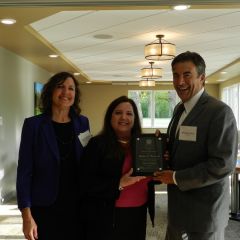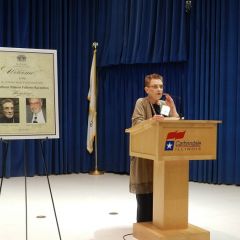Quick Takes on Illinois Supreme Court Opinions Issued Thursday, May 24
 The Illinois Supreme Court handed down three opinions on Thursday, May 24. The court upheld the constitutionality of the Vehicle Code’s definition of "low-speed gas bicycle" in People v. Plank, considered the application of the officer suit exception to sovereign immunity in Parmar v. Madigan, and determined whether statutory changes apply retroactively to two Freedom of Information Act requests in Perry v. Department of Financial and Professional Regulation.
The Illinois Supreme Court handed down three opinions on Thursday, May 24. The court upheld the constitutionality of the Vehicle Code’s definition of "low-speed gas bicycle" in People v. Plank, considered the application of the officer suit exception to sovereign immunity in Parmar v. Madigan, and determined whether statutory changes apply retroactively to two Freedom of Information Act requests in Perry v. Department of Financial and Professional Regulation.



 You negotiate every day. In fact, your ability to effectively negotiate may be the most critical skill you possess, yet most negotiate instinctively or intuitively. This Master Series seminar trains you to approach negotiations with a strategic mindset, allowing you to become a more effective lawyer. And make no mistake – no matter how much you’ve negotiated, you can still learn. Adding that one new tactic may be the difference between winning and walking away empty-handed. Topics include: the golden rules of negotiation; gaining leverage with alternatives; using objective criteria and timing to your advantage; techniques for gathering information; generating creative solutions; dealing with "negotiation games;" and ethical considerations.
You negotiate every day. In fact, your ability to effectively negotiate may be the most critical skill you possess, yet most negotiate instinctively or intuitively. This Master Series seminar trains you to approach negotiations with a strategic mindset, allowing you to become a more effective lawyer. And make no mistake – no matter how much you’ve negotiated, you can still learn. Adding that one new tactic may be the difference between winning and walking away empty-handed. Topics include: the golden rules of negotiation; gaining leverage with alternatives; using objective criteria and timing to your advantage; techniques for gathering information; generating creative solutions; dealing with "negotiation games;" and ethical considerations. Asked and Answered
Asked and Answered